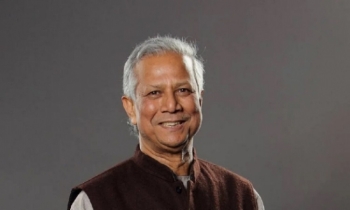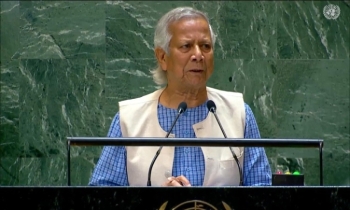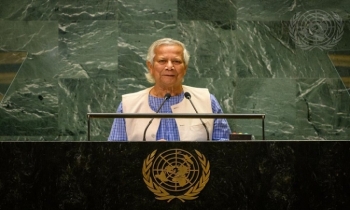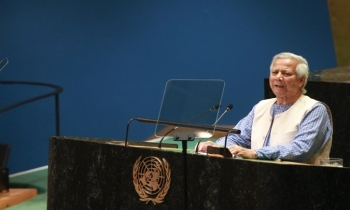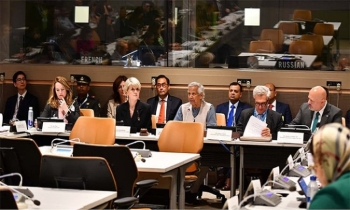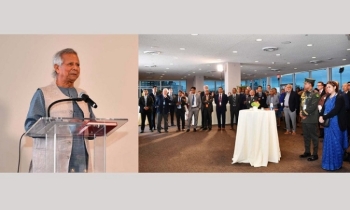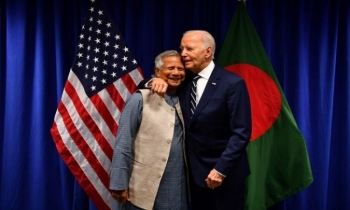Bangabandhu’s assassination plunged country into a series of disasters: Academics
UNB || BusinessInsider
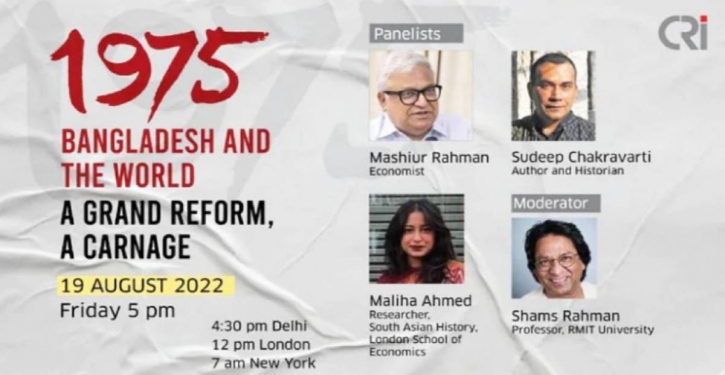
Photo: Collected
The assassination of Father of the Nation Bangabandhu Sheikh Mujibur Rahman along with his family members in 1975 plunged the country into a series of disasters, speakers said in a webinar.
The political landscape witnessed a complete U-turn after August, 1975 with all out attempts were employed to destroy the spirit of the Liberation War - secularism and progressive ideologies, they said.
“The brutality of the August 15 killings shocked the world and devastated the nation’s psyche. It is the beginning of the darkest period in Bangladesh history with a military government taking over and murder of four national leaders in jail, coups and counter coups and ultimately the rehabilitation of August 15 killers through a special ordinance,” said Prof Shams Rahman of Australia’s RMIT university.
BNP’s founder Gen Ziaur Rahman was a key figure behind those spell of disasters descended on the country in the aftermath of that grisly killing, academics told at a discussion titled “1975 Bangladesh and the World: A Grand Reform and A Carnage” organised by the Centre for Research and Information (CRI).
The CRI organised the programme on Friday evening as part of its research and policy advocacy works on pressing issues.
Speaking at the webinar Prime Minister’s Economic Affairs Adviser Dr Mashiur Rahman condemned the then military officer Ziaur Rahman for sabotaging the country during the Bangabandhu’s tenure.
He recounted one occasion when Zia’s support for Pakistan was evident even in the lifetime of Bangabandhu.
When there was a proposal for importing textiles to make army uniforms, Zia preferred Pakistan, saying Indian army uniforms were of inferior quality.
Author and researcher Sudeep Chakravarti talked about Bangabandhu’s focus on secularism.
“Bangabandhu from a young star became the leader of Bangladesh and turned the county’s view into a secular one from a religious one. Now Bangladesh is practicing better secularism than India. Not only that, Bangladesh’s GDP growth it’s also very admirable. Bangladesh has the second largest garments sector in the world,” he said.
During the discussion, researcher Maliha Ahmed appreciated Bangabandhu’s diplomatic efforts to gain recognition of Bangladesh which created a domino effect regarding the gain of recognition from other countries as well.
As the big countries like the UK, USA, Russia, and China put on hold their endorsements of independent Bangladesh, Bangabandhu continued his efforts to earn that stature through diplomatic efforts, said Maliha Ahmed.
“After the victory, Bangladesh was waiting for Bangabandhu’s homecoming. At that time India gave recognition to Bangladesh as a sovereign country. The big countries like the UK, USA, Russia, and China were holding their recognition,” said Maliha, a London School of Economics graduate, whose research interest is themed on ‘Bangladesh’s Path to Recognition, 1971-1974’.
“Pakistan didn’t give recognition to Bangladesh until 1974. All of these were big roadblocks for Bangladesh to enter the UN. So, Sheikh Mujibur Rahman was working on that, and he held a host of meetings among countries to earn recognition from Pakistan as a sovereign country,” she added.


